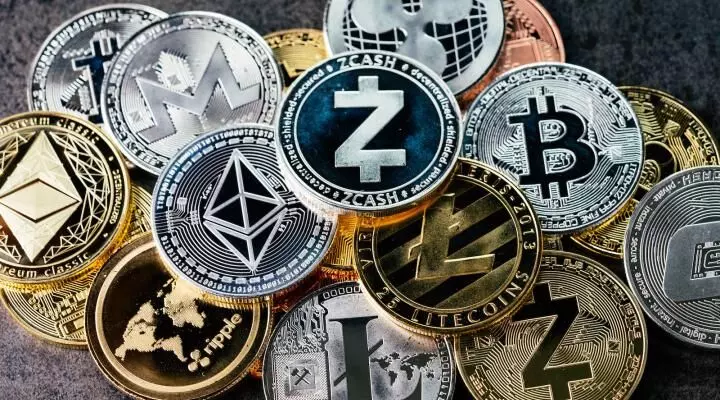Citizen Journalism: Hyderabad techie’s bank accounts frozen over crypto transaction dispute
This incident is a sobering reminder of the risks associated with P2P crypto transactions, even on well-known platforms like Binance
By Newsmeter Network
Representation Image: Crypto currency
NewsMeter has always been at the forefront of highlighting people's problems, celebrating the common person's success, and encouraging people to live their dreams. We are trying to become a bridge between the government and the people. To take this initiative forward, we are introducing a citizen journalism concept This story is part of the initiative.
Hyderabad: With the cryptocurrency trend growing, many individuals have turned to platforms like Binance’s Peer-to-Peer (P2P) network to conduct transactions due to its flexibility and convenience. However, as one software engineer recently discovered, the process can come with unexpected risks.
Routine Transaction Turns Into a Financial Nightmare:
A routine P2P crypto transaction quickly spiraled into a financial dispute for a software engineer who had been confidently using Binance for peer-to-peer transactions. The engineer, an experienced investor in online platforms, was drawn to an offer of ₹88 per USDT (Tether). Seeing the favorable rate, they decided to sell 150 USDT, expecting to receive ₹13,200 in return.
The transaction proceeded smoothly after verifying the buyer’s positive reviews and KYC (Know Your Customer) verification. The buyer transferred the agreed sum, and the USDT was released in exchange. It seemed like another routine deal—until things took an unexpected turn.
Bank Account Frozen:
Shortly after the transaction, the engineer’s bank account was frozen without prior notice. Upon contacting their bank, it was revealed that a complaint had been filed with the National Cyber Crime Reporting Bureau (NCRB) regarding one of their recent transactions. The account was frozen pending investigation, leaving the engineer without access to their funds.
To resolve the situation, the engineer contacted the complainant, providing transaction records to prove the legitimacy of the deal. However, communication with the complainant stalled, leaving the engineer in financial limbo.
Cybercrime Investigation Begins:
Despite submitting all necessary documents, including transaction proofs and communication logs, the investigation did not end. The case was escalated to a cybercrime unit, adding more complexity to the situation. Although the buyer’s funds were returned, the engineer’s bank accounts remained blocked, and they were asked to appear in person for further investigation.
The ongoing inquiry created significant stress for the engineer, who found their financial standing jeopardized. With both their accounts frozen and additional legal fees looming, the individual’s ordeal continued to intensify.
Financial Loss and Legal Headaches
Despite their full cooperation with law enforcement, including the submission of all required documentation, the investigation dragged on. The complainant received their funds back, and the scammer appeared to have escaped legal consequences, while the engineer, the actual victim of the situation, faced both a financial loss and mounting legal trouble.
The impact of this event extended beyond financial loss, creating emotional and mental strain on the engineer and their family, who were dealing with these complex legal challenges for the first time.
A Stark Reminder for Crypto Users:
This incident is a sobering reminder of the risks associated with P2P crypto transactions, even on well-known platforms like Binance. The event highlights the importance of diligence and caution, particularly when handling large transactions.
Here are some key takeaways for crypto users:
1. Verify Sellers Cautiously: Even if a seller has positive reviews and is KYC verified, it’s important to exercise caution before proceeding.
2. Keep Detailed Records: Retaining transaction proof and communication records can be crucial if disputes arise.
3. Understand Legal Risks: P2P transactions carry potential legal and financial risks, and users must be prepared for delays or complications that may arise during the resolution process.
This case underscores the importance of being vigilant in the ever-evolving world of cryptocurrency. While the allure of fast and flexible payments can be appealing, users must also be aware of the potential risks and take proactive steps to protect their financial interests.